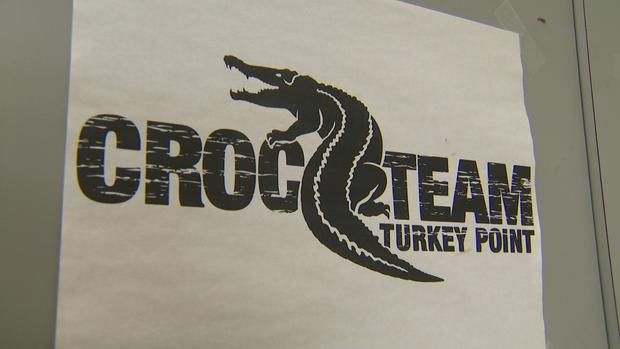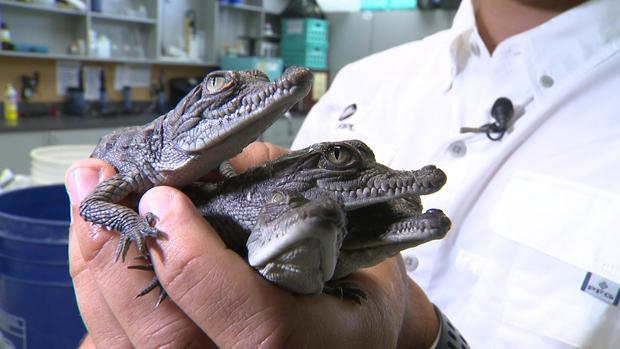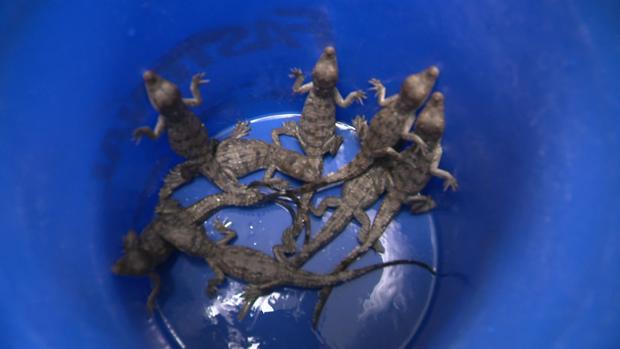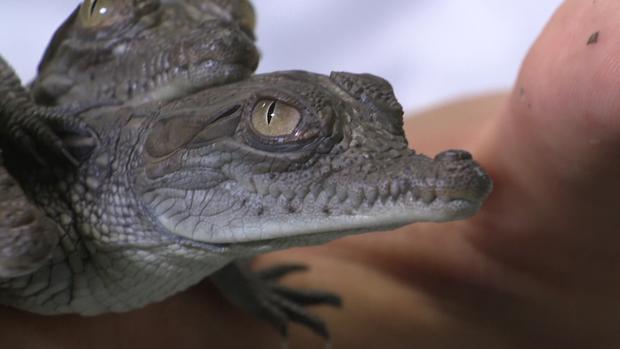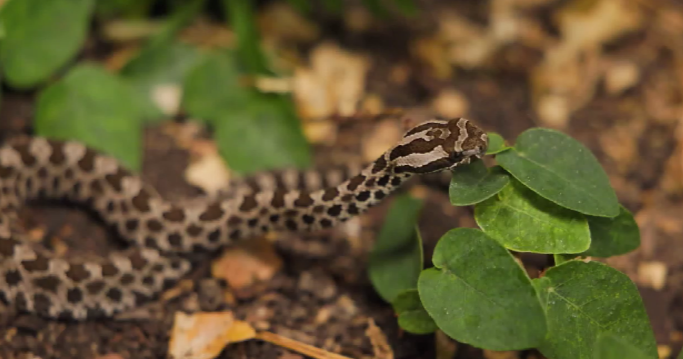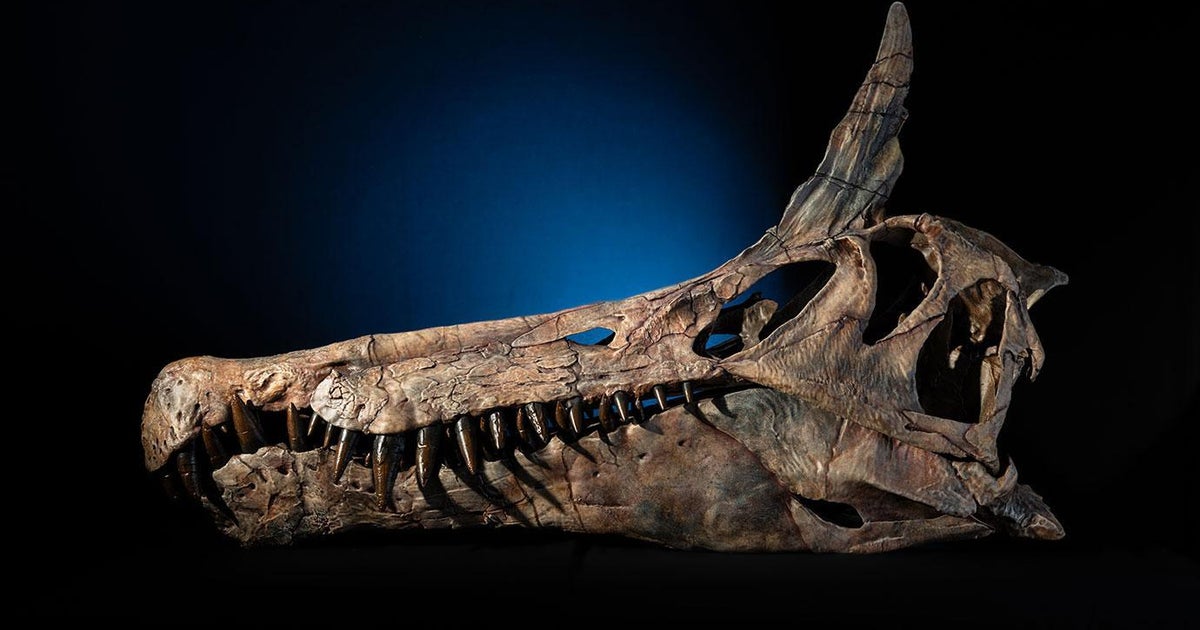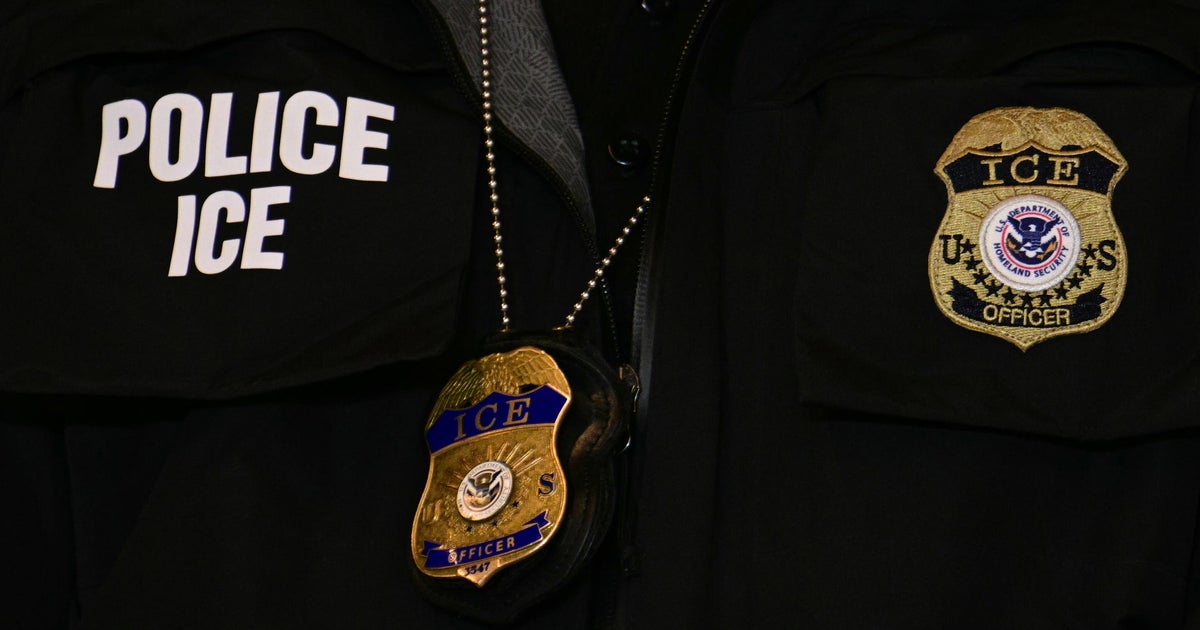Once Endangered American Crocodiles Continue Comeback Thanks To FPL 'Croc Team' At Turkey Point
SOUTH DADE (CBSMiami) -- Turkey Point nuclear power plant's "crocodile team" is on a mission: to monitor and protect the American crocodiles that make their home in the cooling canals surrounding the plant.
Several hundred American crocodiles live there and the team monitors these naturally shy reptiles to keep hatchlings away from the plant and predators.
The FPL team has even been credited for helping the species rebound from the brink of endangerment.
Turkey Point and the surrounding areas is one of only three major habitats for the American Crocodile in the U.S. The other two are Everglades National Park and Crocodile Lake National Wildlife Refuge in Key Largo.
About 25% of the 2,000 American Crocodiles in the U.S. call Turkey Point home and FPL has a team of biologists who monitor the crocodile population at the plant.
The FPL team works with federal and state conservation agencies to preserve and create habitat for crocodile nesting, tracks their health and well-being and microchips them to follow their growth and development. They also construct ponds to help provide sanctuary for hatchlings and relocate hatchlings to increase survival rates.
Right now, it is hatching season for the croc nests and earlier this week, FPL's biology team rescued 73 hatchlings. Dozens more are expected to hatch in the next week.
The Turkey Point Monitoring Program has tagged more than 7,000 hatchlings since its inception.
American crocodiles range in color from gray-yellow to brown, can grow up to 15 feet long and weigh as much as 2,000 pounds. They can be found in fresh or brackish water of river estuaries, coastal lagoons and mangrove swamps, where they feed on small mammals, birds, fish and crustaceans.
The American crocodile is listed as threatened or endangered.
